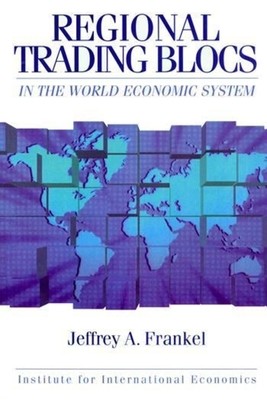
- We will send in 10–14 business days.
- Author: Jeffrey Frankel
- Publisher: Peterson Institute for International Economics
- ISBN-10: 0881322024
- ISBN-13: 9780881322026
- Format: 15.3 x 22.9 x 1.8 cm, minkšti viršeliai
- Language: English
- SAVE -10% with code: EXTRA
Regional Trading Blocs in the World Economic System (e-book) (used book) | bookbook.eu
Reviews
Description
he rapid growth of regional trading relationships in Europe, Asia, and Latin America has raised policy concerns about their impact on excluded countries and on the global trading system. Some observers worry that the multilateral system may be fracturing into discriminatory regional blocs. Others are hopeful that regional agreements will go beyond what was achieved in the Uruguay Round and instead become building blocks for further global liberalization and WTO rules in new areas. Jeffrey Frankel shows through extensive empirical analysis that the new breed of preferential trade arrangements are indeed concentrating trade regionally. He then assesses whether regional blocs are "natural" or "supernatural"â that is, whether they enhance or reduce global welfare. He concludes that a move to complete liberalization within blocs, with no reduction in barriers between blocs, would push the trading system into the supernatural zone of an excessive degree of regionalization. More balanced patterns of liberalization, however, give favorable trading arrangements that are already in effect, and the broader continent-sized groupings that are under discussion (the Americas, Europe, and the Asia Pacific).
EXTRA 10 % discount with code: EXTRA
The promotion ends in 21d.02:25:06
The discount code is valid when purchasing from 10 €. Discounts do not stack.
- Author: Jeffrey Frankel
- Publisher: Peterson Institute for International Economics
- ISBN-10: 0881322024
- ISBN-13: 9780881322026
- Format: 15.3 x 22.9 x 1.8 cm, minkšti viršeliai
- Language: English English
he rapid growth of regional trading relationships in Europe, Asia, and Latin America has raised policy concerns about their impact on excluded countries and on the global trading system. Some observers worry that the multilateral system may be fracturing into discriminatory regional blocs. Others are hopeful that regional agreements will go beyond what was achieved in the Uruguay Round and instead become building blocks for further global liberalization and WTO rules in new areas. Jeffrey Frankel shows through extensive empirical analysis that the new breed of preferential trade arrangements are indeed concentrating trade regionally. He then assesses whether regional blocs are "natural" or "supernatural"â that is, whether they enhance or reduce global welfare. He concludes that a move to complete liberalization within blocs, with no reduction in barriers between blocs, would push the trading system into the supernatural zone of an excessive degree of regionalization. More balanced patterns of liberalization, however, give favorable trading arrangements that are already in effect, and the broader continent-sized groupings that are under discussion (the Americas, Europe, and the Asia Pacific).


Reviews